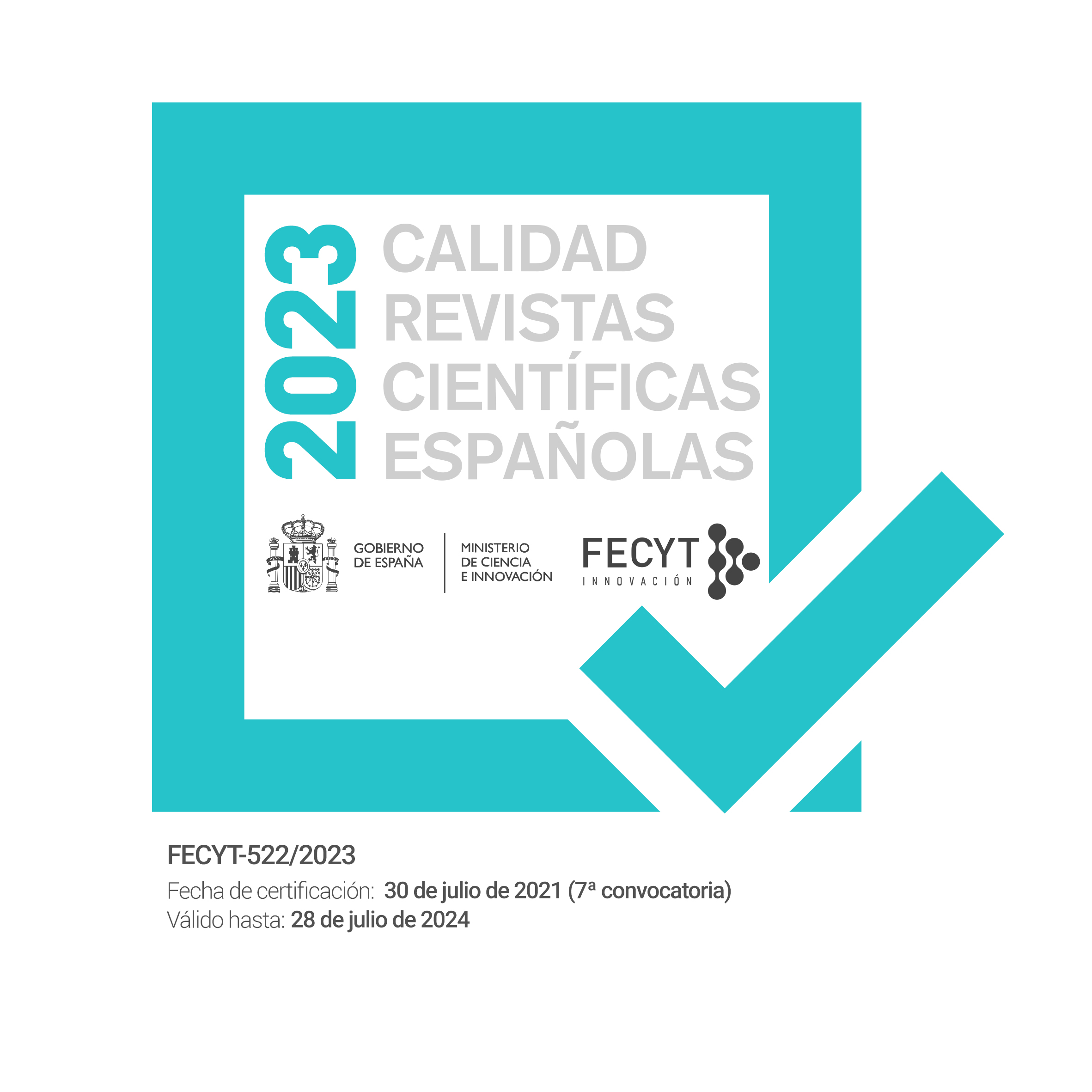Adult Education and lifelong learning in Southern European societies
Resumen
In a context of generalization of education and centralization of knowledge in today's societies, followed by the "intragerationality" (Enguita, 2007) of change, individuals were required to be actively and continuously involved in new stages of education and learning. The right - and the duty - to a relationship with education has been affirmed - beyond initial education and school - which must take place throughout and wide life. The current "cosmopolitanization" of societies (Beck, 2016), underlines the importance of a transnational analysis, for the understanding of social phenomena. Recognizing the importance of a comparing analysis of adult education in Southern European countries, this article aims for the share of regularities and differences that are found in adult education and training systems and in the relationship that adults in each of these countries have with lifelong education. Because we can only understand the adult’s relation with Lifelong Learning by previously analysing his social structure [adult education and training systems], firstly it will be presented the result of a documental analysis which compares adult education systems in Southern European countries [their history, educational contexts, public policies, promoters and adult learning modalities]. Subsequently, and through secondary analysis of data from the Adult Education Survey (2016), the relationship with lifelong learning in each of these countries, through participation and its main barriers, will be compared. These comparisons will allow improvement in the effectiveness by reaching the generalization of LLL in the so-called Southern European countries, allowing them to learn with each other’s, benchmarking good practices.
Palabras clave
Texto completo:
PDF (English)Referencias
Abrantes, P., Amândio, S., Martins, S., Sebastião, J., Alonso, R. (2016). «The “Education Quality” policies in Southern Europe and its impacts over teachers’ and student’s lives ». In Alves, M., Torres, L., Dionísio, B. e Abrantes, P. (orgs): A Educação na Europa do Sul. Constrangimentos e desafios em tempos incertos (449-517). Iª Conferência Ibérica de Sociologia da Educação.
Ávila, P. (2008). A literacia dos adultos: competências-chave na Sociedade do Conhecimento. Lisboa: Celta.
Beck, U. (2017). A Metamorfose do mundo: como as alterações climáticas estão a transformar a sociedade. Lisboa: Edições 70.
Capucha, L. (2013). «Em defesa da Iniciativa Novas Oportunidades: A qualificação de adultos é uma prioridade». Revista Aprender, outubro 2013, pp. 29-65
Capucha, L. (2018). «Educação de adultos: a ideologia conta». Fórum Sociológico [Online], 32. DOI:10.4000/sociológico.1938
Carvalho da Silva, V. & Ávila, P. (in press). «Nas margens da sociedade educativa. Perfis sociais, práticas e atitudes face à aprendizagem ao longo da vida da população com baixa escolaridade em Portugal». SOCIOLOGIA ONLINE.
Cedefop (2020). Perceptions on adult learning and continuing vocational education and training in Europe. Second opinion survey – Volume 1. Member States. Luxembourg: Publications Office. Cedefop references series; No 117.
Desjardins, R., Rubenson, K., Milana, M. (2006). Unequal chances to participate in adult learning: international perspectives. Paris: UNESCO International Institute for Education Planning.
Enguita, M. (2007). Educação e Transformação social. Magualde: Pedago.
European Commission/EACEA/Eurydice (2020). The Structure of the European Education Systems 2020/21: Schematic Diagrams. Eurydice Facts and Figures. Luxembourg: Publications Office of the European Union.
European Commission/EACEA/Eurydice (2011). Educação Formal de Adultos: Políticas e Práticas na Europa. Luxembourg: Publications Office of the European Union.
European Commission (2019). Achievements under the Renewed European Agenda for Adult Learning. Luxembourg: Publications Office of the European Union.
European Council (2016). 19 December 2016: Recommendations on up-skilling pathways: new opportunities for adults. Official Journal of European Union.
Eurostat Database. https://ec.europa.eu/eurostat/web/main/data/database (Accessed 25 May 2021)
Eurydice (2021). National Education Systems. http://eacea.ec.europa.eu/national-policies/eurydice (Accessed 25 May 2021)
Jarvis, P. (2004). Adult Learning and Lifelong Learning: Theory and Practice. London: RoutledgeFalmer.
Lavrijsen, J. & Nicaise, I. (2017). «Systemic obstacles to lifelong learning: the influence of the educational system design on learning attitudes». Studies in Continuing Education, 39:2, 176-196.
Martins, S., Sebastião, J., Abrantes, P. Rodrigues, M. L. (2018). «Desigualdades e Políticas Educativas: Portugal no Contexto Europeu». In R. Carmo, J. Sebastião, J. Azevedo, S. Martins, A. Firmino da Costa (orgs.): Desigualdades Sociais: Portugal e a Europa (7-22). Lisboa: Mundos Sociais.
Martins, S., Mautti, R., Nunes, N., Costa, A. F. (2016). «A educação ainda é importante para a mobilidade social? Uma perspetiva das desigualdades educacionais da Europa do Sul no contexto europeu». Revista Portuguesa de Educação, 29 (2), pp. 261-285.
OECD (2019). Getting Skills Right: Future-Ready Adult Learning Systems, Getting Skills Right, OECD Publishing, Paris, https://doi.org/10.1787/9789264311756-en.
OECD (2020). Increasing Adult Learning Participation: Learning from Successful Reforms. OECD Publishing, Paris.
Palomba, D. & Cappa, C. (2018). «Comparative Studies in Education in Southern Europe». Comparative Education, 54:4, 435-439, DOI: 10.1080/ 03050068. 2018.1528774.
Rodrigues, M. L., Sebastião, João, Mata, João Trocado da, Capucha, Luís, Araújo, M., Silva, M....Válter Lemos (2014). «A construção do sistema democrático de ensino». In Maria de Lurdes Rodrigues (Ed.), 40 Anos de Políticas de Educação em Portugal - Volume I - A construção do sistema democrático de ensino. (pp. 35-88).
UNESCO (2020). Embracing a culture of lifelong learning –Contribution to the Futures of Education initiative. Paris: UNESCO International Institute for Education Planning.
UNESCO (2019). 4th Global Report on Adult Learning Education. Leave no One Behind: Participation, Equity and Inclusion. (2019). Germany: UNESCO Institute for Lifelong Learning.
Enlaces refback
- No hay ningún enlace refback.

Este obra está bajo una licencia de Creative Commons Reconocimiento-NoComercial-CompartirIgual 4.0 Internacional.
Revista de Sociología de la Educación - RASE
ISSN: 2605-1923 (anterior ISSN: 1988-7302)
raserevista@gmail.com

Las publicaciones de la RASE tienen Licencia Creative Commons Reconocimiento-NoComercial-CompartirIgual 4.0 Internacional.












